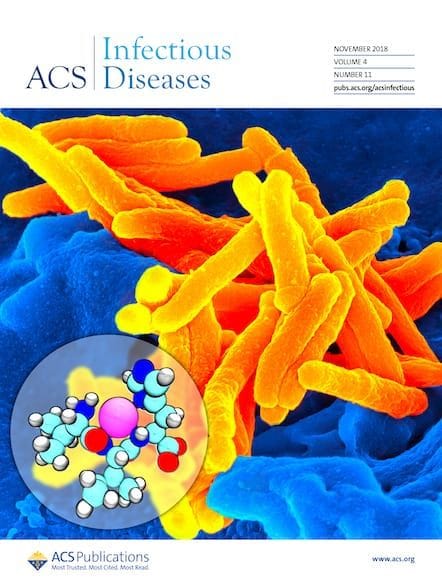On May 24, ACS Publications and Professor Gerry Wright of McMaster University teamed up to host an Ask Me Anything (AMA) on Reddit’s r/AskScience covering antibiotics research and more. Professor Wright is the Director of the Michael G. DeGroote Institute for Infectious Disease Research and an Associate Editor at ACS Infectious Diseases. His work is […]

On May 24, ACS Publications and Professor Gerry Wright of McMaster University teamed up to host an Ask Me Anything (AMA) on Reddit’s r/AskScience covering antibiotics research and more. Professor Wright is the Director of the Michael G. DeGroote Institute for Infectious Disease Research and an Associate Editor at ACS Infectious Diseases. His work is centered on antibiotic resistance and discovery, and his lab takes a multidisciplinary approach to find new ways to treat infectious disease. The r/AskScience community had a lot of questions for Professor Wright, who in turn provided thoughtful and thorough responses.
Below are some highlights from the AMA:
/u/nate: Could you discuss your career progression a bit? How did you end up in this position? Was it something you originally set out to do? If a college student was interested in similar things, what would you suggest they do?
Professor Wright: My undergrad degree is in Biochemistry and as a senior research thesis I worked on enzymes that are involved in the biosynthesis of siderophores (compounds produced by bacteria to sequester iron). That experience got me turned on to research as a career and bacteria as cool organisms. My PhD is in Chemistry and I worked on the synthesis and evaluation of candidates for new antifungal drugs (this was the height of the AIDS epidemic and fungal infections were tearing through the community). This gave me a big interest in infectious disease and drugs. As a postdoc, I lucked out on a project to understand a new mechanism of antibiotic resistance that had just emerged in the clinic. The antibiotic was vancomycin and as part of my project (in a biochemistry lab) I also got to work with clinicians who were treating patients with vancomycin resistance infections. This got me excited about working closely with the medical community, so when I was setting out to find a job as an independent investigator, I really wanted to work in a medical school to maintain the link to the clinic. I saw in antibiotic resistance a niche where my skill set (chemistry, biochemistry) could be valuable and the rest is history. I’m not an expert in one particular area, but I have found that by applying my interests in molecular mechanisms to problems of clinical need, that I could help advance questions and try to find solutions.
/u/reptilesni: How far away are we from complete resistance to current antibiotics?
Professor Wright: This is a tricky question because there are so many different types of bacteria and mechanism of resistance. The good news is that I don’t foresee that anytime soon ALL our antibiotics will be useless against All bacteria. However, for some strains of pathogens (disease-causing bacteria) we are already at the stage of ‘complete resistance’ i.e. no currently available antibiotics work. These are for the most part confined to places where we use lots of antibiotics like hospitals and some farms. The challenge is that we are not finding new drugs faster than resistance is emerging. The result is a growing supply and demand gap that is only growing wider.
/u/jtotheizzoe: How much resistance is due to animal agriculture compared to overprescription/not finishing prescriptions? Does one seriously outweigh the other?
Professor Wright: This is a great question. Sadly we don’t have the answer. Just getting accurate data on how much antibiotics are used in agriculture is virtually impossible outside of Europe. This is an area that needs out attention and research to provide data. Certainly there is little doubt based on well performed studies in many countries and the European experience over the past several years, that agricultural use of antibiotics contributes to the problem significantly. We just are struggling with proportion of impact.
/u/b_random_b: What’s your favorite super bad, super bug? Why?
Professor Wright: Acinetobacter baumannii. It’s like the great white shark of antibiotic resistance – top of the food chain. This bug can collect dozens of resistance genes and causes serious infections. It easily spreads in hospitals and was a major problem during the recent wars in the Middle East.
